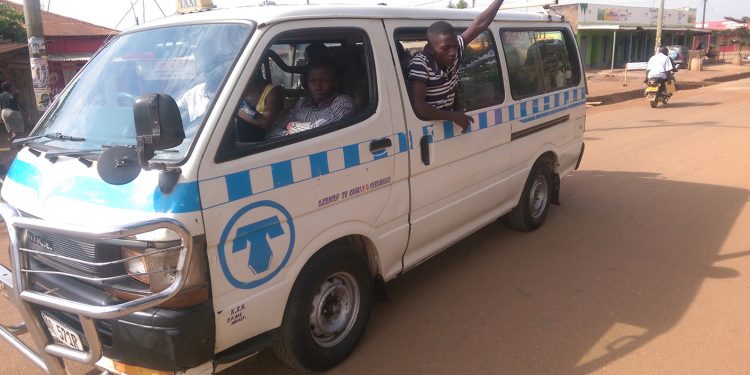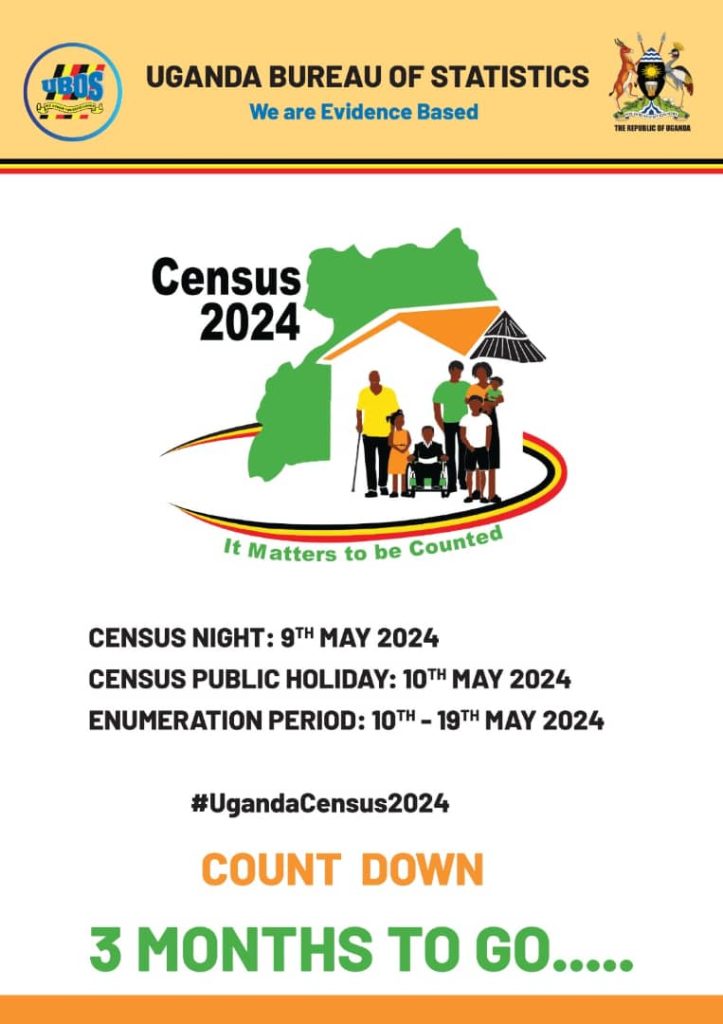Human coronaviruses are spread from someone infected with COVID-19 virus to other close contacts with that person through contaminated droplets spread by coughing or sneezing, or by contact with contaminated hands, surfaces or objects.
It is for this reason that the Ministry of Health is offering guidance to the public on use of public transport to avoid infection and spread of Coronavirus (COVID-19).
1. Should people stop travelling in and outside Uganda until COVID-19 is controlled?
No, public transport in and outside the country should continue until government advises otherwise. However, the Ministry of Health advises people from affected countries including Ugandans to delay their travel outside the country until the situation normalises. If they travel, they are required to undergo self-quarantine for 14 days.
2. Should people avoid taxis and other bus stations that are always crowded?
People should not avoid taxis and bus parks. The Ministry of Health strongly advises park managers, drivers, conductors and travellers to strictly observe and enforce hygiene and sanitation practices issued by the Ministry of Health.
3. What should taxi/ bus owners, drivers and conductors do to prevent the spread of Coronavirus (COVID-19)?
● Provide hand washing facilities (running water with soap or alcohol-based hand sanitizers) to the public and ensure passengers use them before boarding.
● Clean/Sanitise/Disinfect the taxi or bus after every trip paying attention to seats, armrests and handles.
● Do not overload the taxi or bus to allow airflow and to avoid people being too close to each other.
● Drivers and conductors should have adequate protection such as masks and gloves ready for use in case they are needed.
● Ensure that safe waste disposal facilities are provided and passengers communicated to
● Managers, drivers and conductors need to understand how Coronavirus (COVID-19) is transmitted and provide regular health education to their passengers.
4. Should drivers and conductors constantly wear face masks and gloves to protect themselves?
No, drivers and conductors don’t have always have to wear masks and gloves if they are not sick themselves or transporting sick passengers.
5. How should drivers and conductors handle money paid by people suspected to be sick with Coronavirus (COVID-19)?
Handle money as you usually do. However, practice regular hygiene and sanitation practices including using alcohol-based sanitisers.
6. Will government set up roadblocks to ensure that all drivers and conductors and the passengers observe the recommended control guidelines?
Government will ensure that all public transporters adhere to the set standards. It is the responsibility of every person in Uganda to practice the right behaviours to prevent spread of Coronavirus (COVID-19) in the country.
These include regular handwashing with running water and soap; avoiding contact with anyone with a cold or flu-like symptoms; covering your nose and mouth when sneezing and coughing with a tissue or flexed elbow.
7. Should drivers and conductors stop foreign passengers from countries with ongoing Coronavirus (COVID-19) outbreaks from boarding taxis and buses?
No, that is not necessary because the disease can affect anyone. Foreigners should be handled like other people. They are not infectious unless if they are sick.
8. Is Coronavirus (COVID-19) an airborne disease? Can it be spread if someone sneezes or coughs in a taxi or bus?
Coronavirus (COVID-19) is not spread by air (airborne), it is spread by droplets from an infected person. So, if no one openly coughs or sneezes in a taxi or bus, it is unlikely that it will be spread. It is therefore important that all passengers observe hygiene practices such as regular handwashing or use of hand sanitizers, and following coughing etiquette to minimize spreading the infection.
9. How long can the Coronavirus (COVID-19) stay live on seats, door handles and armrests?
The virus may stay live on open surfaces for up to 30 minutes. However, we advise regular cleaning of these surfaces with water and soap or disinfectant such as JIK to be sure that all live viruses have been removed.
10. What should drivers do with a passenger who is clearly sick with Coronavirus (COVID-19) like signs and symptoms?
Advise the passenger to seek medical care immediately at the nearest health facility and alert health workers on the numbers indicated below or the District Health Officials if you are out of Kampala. Provide your contact details and if possible, those of the passengers for follow-up and management by the health workers. However, remember that most people displaying symptoms such as fever, cough, sore throat or tiredness are likely suffering from a common cold or other respiratory illness and not necessarily Coronavirus (COVID-19).
11. What should sick passengers do if they must travel?
It is better for one to avoid travelling when sick, however, if it is unavoidable, ensure the following:
● Sick passengers should use private means to minimize exposure to others.
● Wear a surgical mask if available.
● Avoid direct contact with other passengers, drivers and conductors.
● Practice good hygiene and proper coughing/sneezing etiquette and dispose of used tissues in a provided bin.
● Wash your hands frequently with soap and running water or hand sanitizers before boarding.
● Avoid contact with others – stay more than 1 meter (3 feet) from other people.
For more information, please contact any of the following:
District Health Officers for appropriate direction or
Call Ministry of Health toll-free lines on 0800-203-033 and 0800-100-066



